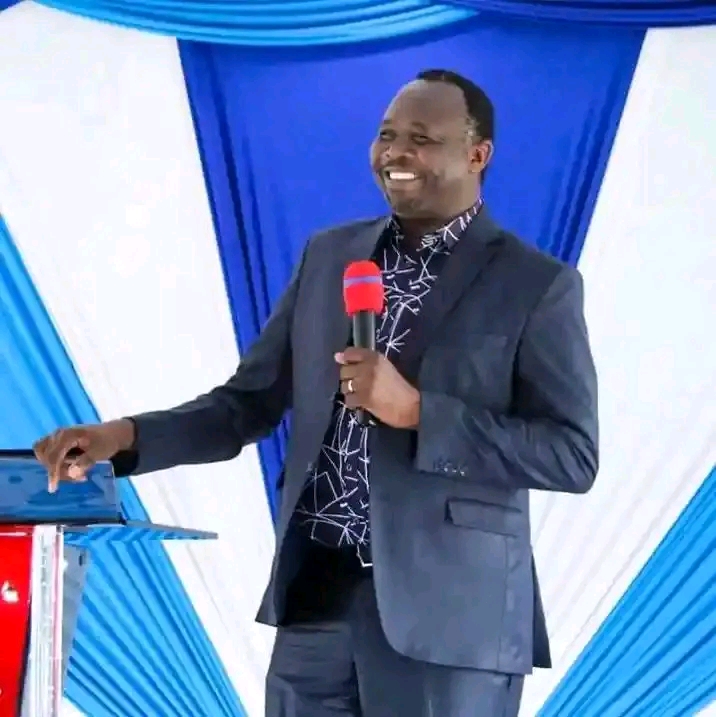Every head of a school will face it sooner or later — whispers behind the back, subtle criticism, and outright gossip. It is an unavoidable part of leadership. No matter how competent, dedicated, or principled a leader is, there will always be people who question decisions, envy achievements, or feel threatened by influence. This is particularly true in schools, colleges, and churches, where close interactions create opportunities for misunderstanding, misinterpretation, and sometimes deliberate misinformation. Yet, how a head of institution responds to backbiting and criticism can either define their trajectory or weigh them down, undermining both their peace and their mission.
Leadership is not just about making decisions or enforcing rules. It is about navigating the complexities of human relationships with wisdom, patience, and resilience. In every organization, there will be staff members whose focus is not on collaboration but comparison, whose energy is directed not toward excellence but envy. When they whisper behind your back, speak ill of your integrity, or question your choices, it is rarely a reflection of your leadership; it is often a mirror of their insecurity.
Consider the story of the eagle. In the natural world, the only bird bold enough to challenge an eagle is the crow. The crow perch on the eagle’s back and begins to peck at its neck, seeking to irritate and slow it down. Its aim is to distract, unsettle, and perhaps even assert dominance. But the eagle does not argue, it does not retaliate, and it does not waste a second on the crow. Instead, it spreads its powerful wings and begins to soar higher. As it climbs, the air becomes thinner, and the crow struggles to breathe. Eventually, unable to survive at such altitude, the crow falls, defeated by the very height it sought to challenge. The eagle does not fight the crow — it rises above it.
This story offers a profound lesson for heads of institutions. Backbiting, gossip, and criticism are like the crow. They are small, noisy, and designed to distract, irritate, and test your focus. But as a leader, your task is to rise above. Engaging in arguments, explaining yourself to every critic, or responding to every whisper only consumes energy and lowers your altitude. Instead, leaders must learn to fly higher — by investing their energy into excellence, integrity, and vision.
Excellence is the leader’s greatest defense. In schools, the quality of your administration, the efficiency of your systems, and the clarity of your communication are far more powerful than words ever could be. When a principal consistently ensures that students are learning, teachers are supported, and policies are implemented fairly, these tangible results speak louder than gossip or criticism. Similarly, in churches, a minister or leader who leads with humility, serves faithfully, and guides with wisdom demonstrates a character that cannot be undermined by rumor. Excellence, consistently applied, creates an environment where petty talk falls away on its own.
ALSO READ:
Rename Bomet University College in honour of Kipkalya Kones, youth leader Petitions Ruto
Understanding the psychology of backbiting is also essential. When people gossip, it is rarely about you. It reflects their own fears, jealousy, and insecurity. Those who attack, criticize, or spread rumors are often the ones struggling to find their place or measure up in some way. Recognizing this protects your peace. Once you understand that backbiting is more about them than you, it loses much of its power to disturb or distract you. You stop internalizing their words and start focusing on the mission you were called to fulfill.
Silence is a powerful strategy. The eagle does not fight the crow, and neither should you. Reacting emotionally, defending yourself, or retaliating only validates the gossip. Calmness and focus, on the other hand, starve it of oxygen. Protecting your peace is not passivity; it is wisdom. By refusing to give undue attention to petty attacks, you conserve energy for leadership, for teaching, for mentoring, and for achieving the vision entrusted to you. Every word spent responding to rumors is energy that could be invested in progress.
In addition to silence, leaders must cultivate support networks. Mentors, trusted colleagues, and prayerful friends provide perspective, encouragement, and guidance. Sharing your challenges with those who understand your purpose helps you process without amplifying the gossip. It also reminds you that you are not alone in your struggles, that even the strongest leaders face attacks, and that enduring storms is part of leadership.
Storms are inevitable. Criticism, envy, and challenges will always arise. But the eagle shows us that storms are not obstacles; they are opportunities. By flying into the wind, the eagle uses the turbulence to rise higher. Similarly, a head of an institution can use criticism and challenges to refine leadership skills, strengthen resilience, and elevate influence. Each attempt to pull you down is, paradoxically, an opportunity to ascend, to demonstrate maturity, and to inspire those around you.
Leaders must also remain anchored in purpose. Teaching and leading are higher callings. A head of an institution is entrusted with shaping young minds, modeling integrity, and creating an environment where excellence thrives. Keeping your eyes fixed on this mission allows you to ignore distractions and focus on outcomes that truly matter. Every act of professionalism, fairness, and diligence not only silences critics but also sets a model for staff, students, and the community. It communicates that leadership is measured not by popularity or rumor, but by consistency, integrity, and impact.
ALSO READ:
Science and innovation leaders rally to advance national research agenda
Another essential skill for leaders facing backbiting is discernment. Not every comment deserves a reaction. Not every opinion requires validation. By carefully choosing where to invest energy, leaders protect themselves from unnecessary stress and preserve clarity of judgment. Listening to constructive feedback is essential, but distinguishing between genuine counsel and petty criticism is what separates a wise leader from a reactive one.
Backbiting is temporary; your influence and legacy are lasting. Staff and learners remember fairness, consistency, and support long after whispers have faded. Leaders who rise above gossip create a culture where excellence is recognized, where peace is valued, and where petty talk is powerless. Your calm, unwavering focus becomes a silent lesson in maturity for everyone around you.
Practical steps for surviving backbiting include maintaining transparency, documenting decisions, communicating clearly with staff, and leading by example. When people see fairness in action, they have little ground to fuel gossip. Encouraging collaboration and celebrating collective success reduces envy and strengthens cohesion. In environments where transparency, accountability, and fairness are evident, the crow finds fewer opportunities to attack.
Finally, resilience and faith are essential. Leaders must believe in their calling and trust the process. Just as the eagle trusts its wings and the height it can reach, heads of institutions must trust their training, experience, and judgment. The storm of backbiting is real, but it is not insurmountable. By focusing on mission, modeling excellence, and flying above the petty noise, leaders not only survive but thrive.
In conclusion, a head of an institution is like the eagle in the story. The crow will always try to distract, irritate, and pull you down, but your power lies in rising above. Do not fight the crow. Do not waste time and energy in retaliation. Instead, soar higher through integrity, excellence, and steadfastness. Let your results, character, and consistent leadership speak louder than any whisper. Let your calmness confuse critics and let your resilience become your shield. Greatness never shouts; it rises. The sky is never crowded, and there is room for every leader willing to rise above the storm.
Do not waste breath on gossip — use it to soar. Greatness is waiting, and the higher you fly, the less the noise can touch you.
By Hillary Muhalya
You can also follow our social media pages on Twitter: Education News KE and Facebook: Education News Newspaper for timely updates.
>>> Click here to stay up-to-date with trending regional stories
>>> Click here to read more informed opinions on the country’s education landscape






